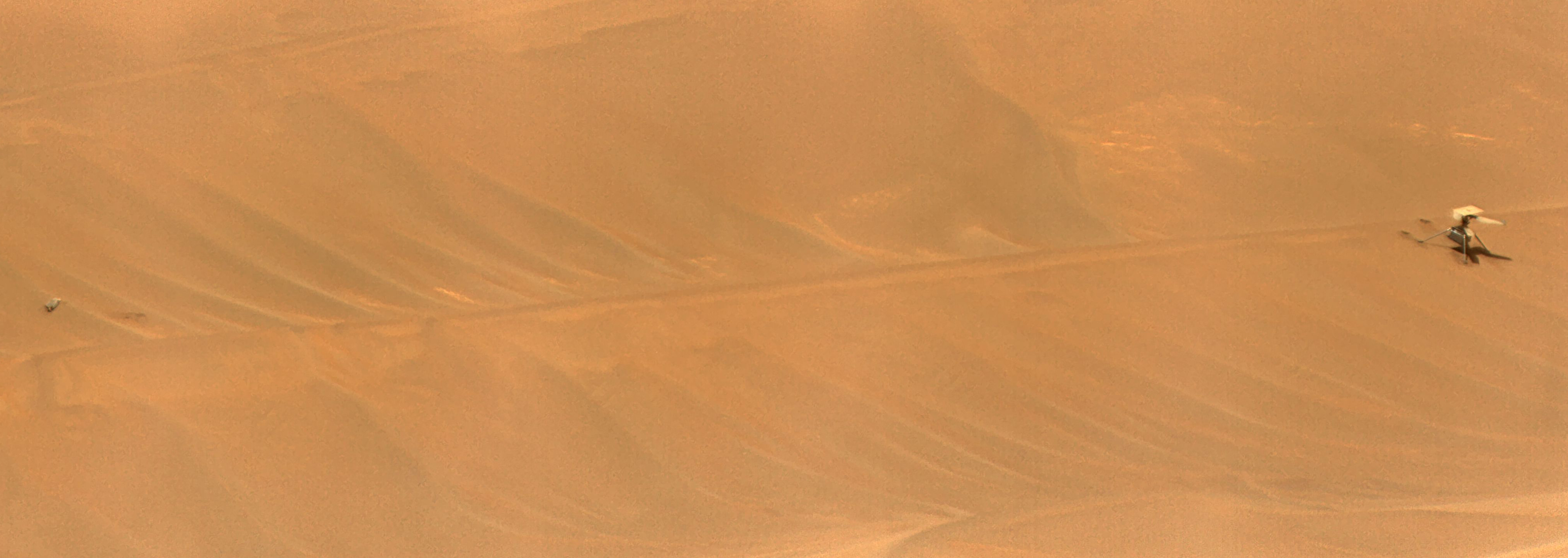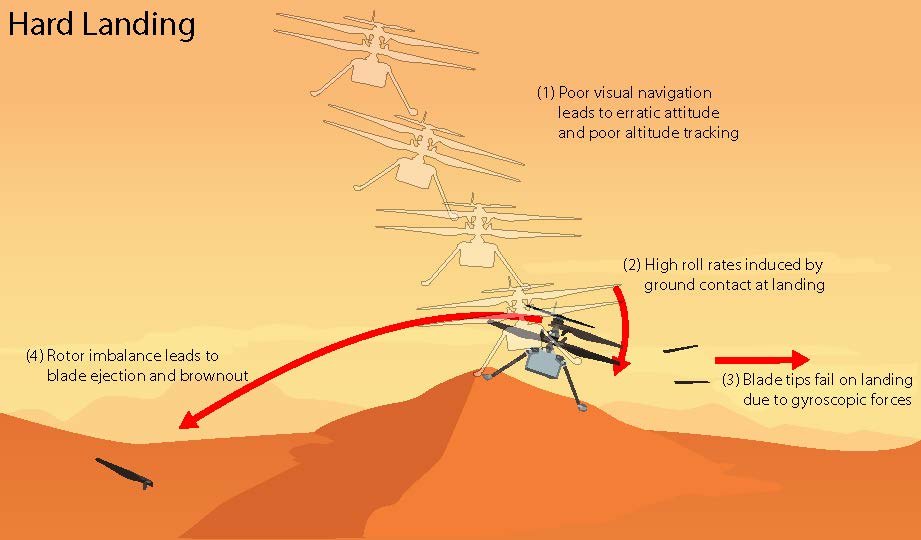NASA’s Ingenuity was the first ever flying vehicle operated on another planet. It truly was a marvel, and every flight outperformed the hope of its designers – but on January 18, 2024, the little helicopter that could had an accident that brought an end to its career.
Engineers from NASA’s Jet Propulsion Laboratory in Southern California and AeroVironment are completing a detailed assessment of what went wrong that day, making this the first aircraft accident investigation on another world. The investigation has concluded that an issue with the navigation system was to blame. It’s likely that the system did not provide accurate data, leading to a chain of events that ended the working life of Ingenuity.

The hard fall probably caused the rotor to break.
Image Credit: NASA/JPL-Caltech/LANL/CNES/CNRS
On its last flight, the helicopter soared to a height of 12 meters (40 feet), hovering in place, and snapping photos of the sandy ground below. At 19 seconds into the flight, Ingenuity began its descent – 13 seconds later, it was on the surface, but had sustained damage to its rotors.
The relatively featureless ground was probably its downfall. Without objects to track, the navigation system didn’t know its precise position, leading to a dramatic impact.
“When running an accident investigation from 100 million miles away, you don’t have any black boxes or eyewitnesses,” Ingenuity’s first pilot, Håvard Grip of JPL, said in a statement. “While multiple scenarios are viable with the available data, we have one we believe is most likely: Lack of surface texture gave the navigation system too little information to work with.”

This is the likely scenario that ended Ingenuity’s flights.
Image Credit: NASA/JPL-Caltech
Despite no longer being mobile, Ingenuity continues to send weekly updates on the weather and avionics, which are important for future vehicle designs. Ingenuity was only supposed to work for five flights over a period of 30 days, designed with cheap off-the-shelf materials just to show that such an approach could work.
In the end, it worked over almost three years, took 72 flights, flew 30 times farther than intended, and went faster and higher than it was expected to go. A testament to the hard work and talent of the team that built it.
“Because Ingenuity was designed to be affordable while demanding huge amounts of computer power, we became the first mission to fly commercial off-the-shelf cellphone processors in deep space,” said Teddy Tzanetos, Ingenuity’s project manager. “We’re now approaching four years of continuous operations, suggesting that not everything needs to be bigger, heavier, and radiation-hardened to work in the harsh Martian environment.”
The investigation results were presented at the American Geophysical Union Meeting, where Tzanetos shared details about the possible successor of Ingenuity: the Mars Chopper rotorcraft. That vehicle will be able to carry several pounds of scientific equipment and travel up to 3 kilometers (2 miles) in a day.
Source Link: First Ever Aircraft Accident Investigation On Another Planet Carried Out By NASA